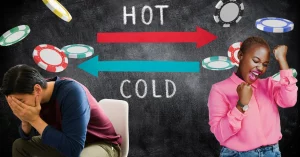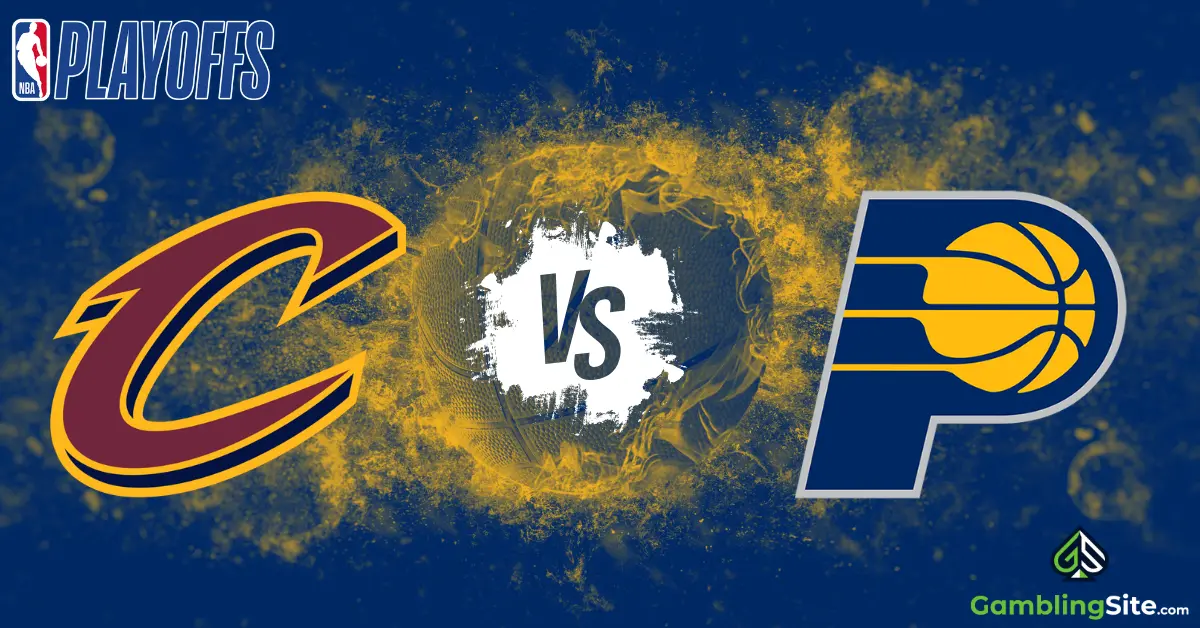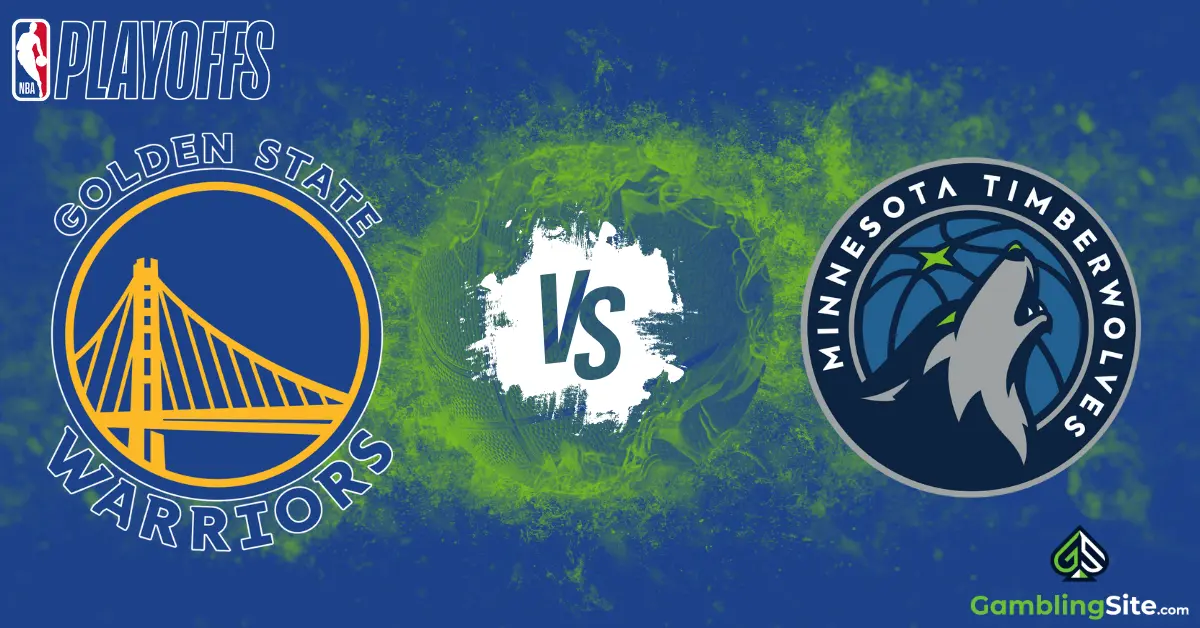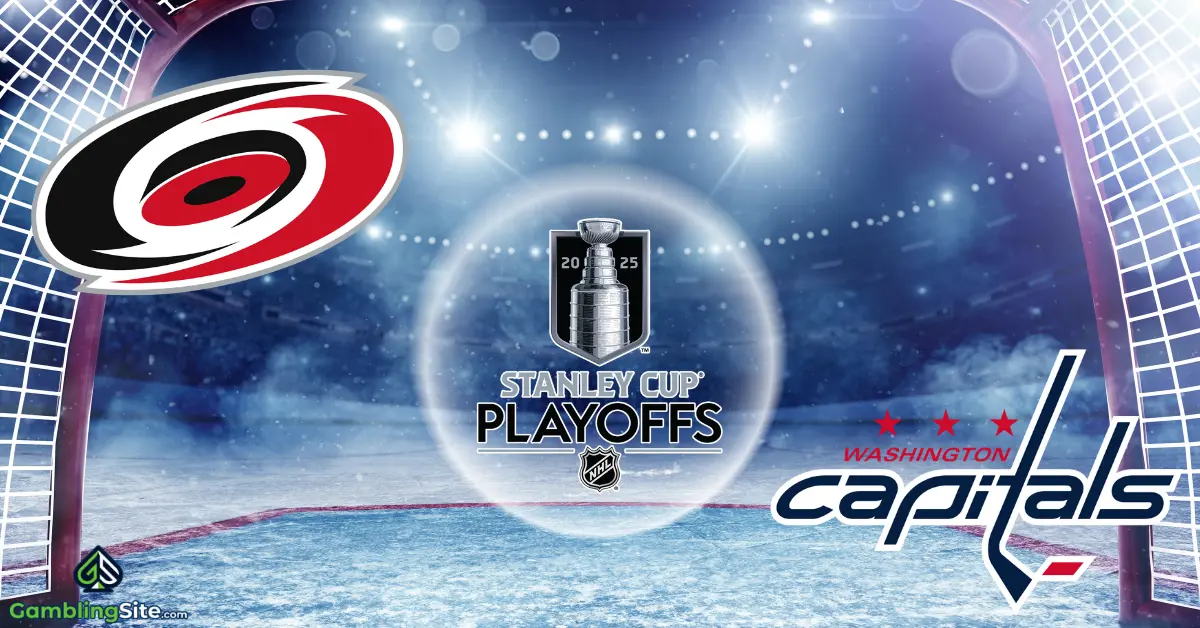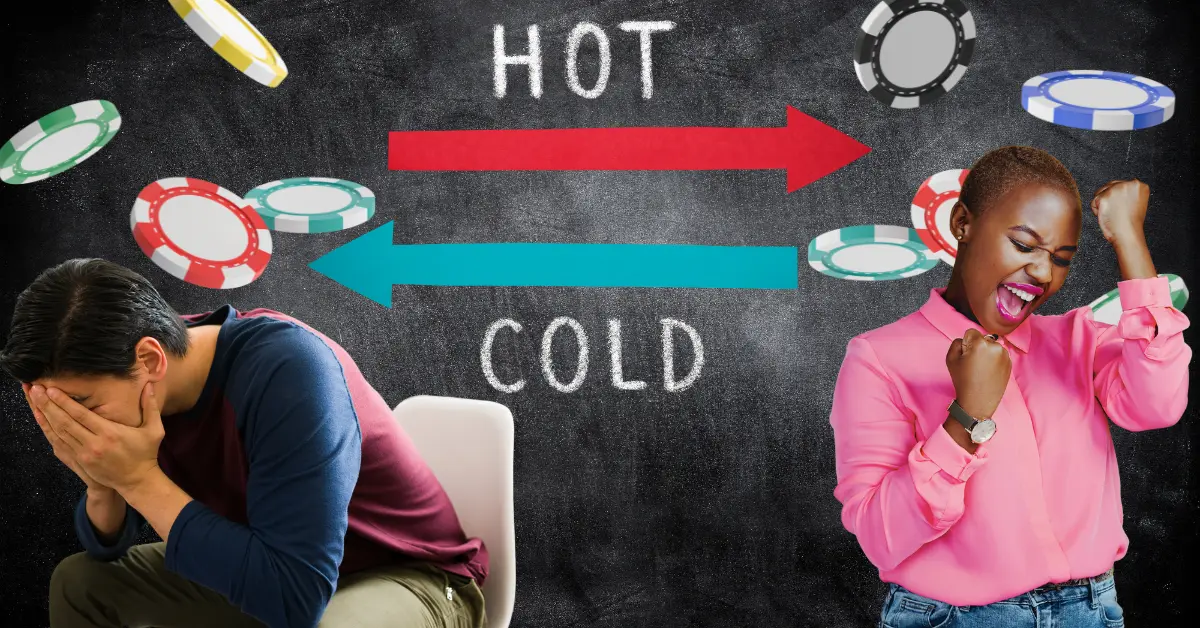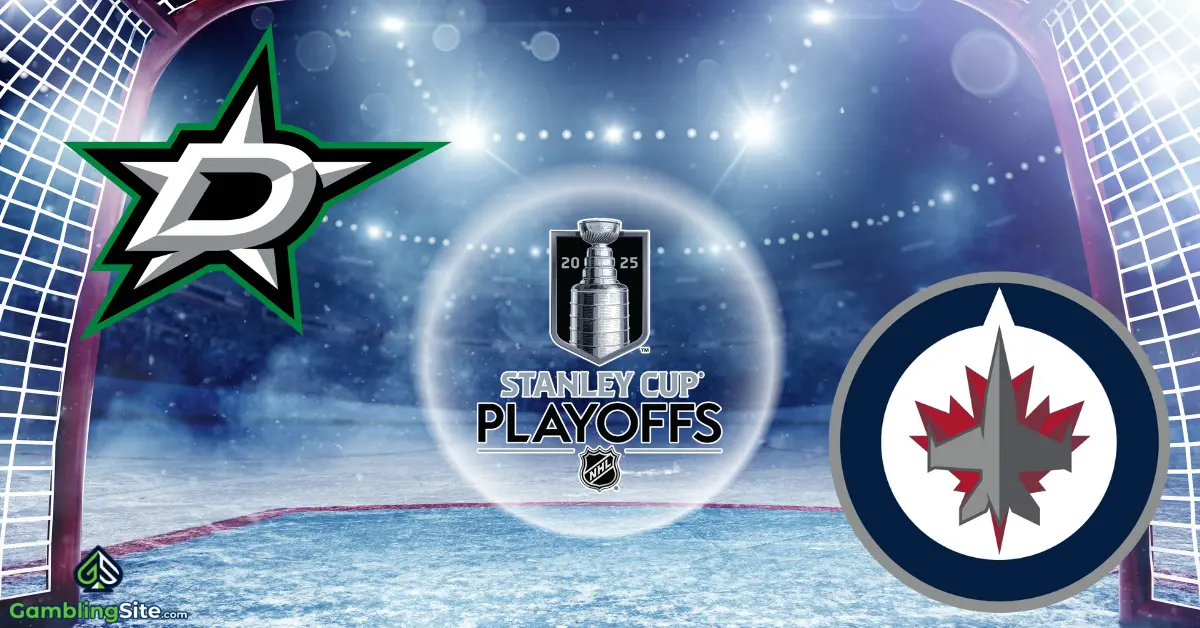Why We Gamble: The Psychology Behind Taking Risks
Why do we gamble? Because it’s exciting and fun! Those are the obvious reasons. But there are less obvious ones that we may not even be aware of, and it’s all psychological. Gambling has always been a part of normal human behavior—from ancient dice games to today’s casino games, the appeal has spanned centuries and cultures. But what exactly makes it so irresistible for us?
To understand gambling is to understand a fundamental part of who we are and why it is human nature: we innately love a little risk-taking. We are going to go over all of the psychological reasons why people gamble, including the mental processes, emotions, and instincts that make it a universal thing!
The Appeal of Gambling
Think gambling only takes place in casinos and on online gambling sites? Think again! Gambling encompasses lottery tickets, card games between friends, and the bets that are laid down on the outcome of a sports event. Its global appeal is ingrained so much deeper than the possibility of winning money—it’s excitement, escapism, and how our brains process the unknown.
Main Psychological Drivers
Gambling taps into how our brains are wired—it triggers a combo of psychological and emotional responses that keep us playing even when we know that the odds are stacked against us.
- The Thrill of Uncertainty: There’s really nothing like the suspense of waiting to see how the dice land or where the roulette ball stops. It’s this unpredictability that keeps us engaged because our brains are literally wired to want the unknown. When we gamble, our reward system goes bonkers and lights up, and that releases those feel-good chemicals—even if the outcome isn’t in our favor. The possibility of “what could happen” is more than enough to keep us hooked.
- Dopamine and Rewards: Winning feels incredible, but gambling does something really unusual—it rewards us even when we don’t win. Weird, right? Neuroscientists discovered that near-wins trigger a dopamine release that’s almost as strong as an actual win. The chemical reaction keeps players motivated, as they think they’re just about to hit the jackpot. It’s the ultimate brain hack: even when you’re losing, your brain will trick you into thinking you’re close enough so that you keep on going.
- Escapism: Life is super stressful, and for a lot of people, gambling is a temporary break from it all. It could be the fun of a scratch-off ticket or the immersive environment of a casino—gambling is a world where everyday worries can fade into the background, even if it’s just for a little while.
Supporting Evidence
Do you want scientific evidence? You got it! The psychological drivers aren’t mere theories—they’re backed up by science and real-life experiences.
- Scientific Studies: Brain scans show that gambling activates the same reward pathways as other pleasurable activities, like eating or listening to music. In one study, participants showed nearly identical brain activity when experiencing a near-win as when they won, and that just proves how powerful the effect can be.
- Real-Life Examples: Look at the madness that surrounds state lotteries with massive jackpots. Even when the odds are astronomical, people buy tickets because the dream of winning triggers hope and excitement. Casinos use the same exact principles—they build environments that are designed to keep players engaged and optimistic about their chances of winning big.
The Role of Risk-Taking in Human Behavior
Why do we take risks? Because it’s a part of being a human being! We are hard-wired to do it—it’s all tied into our instincts, personalities, and how we connect with others.
Risk-taking is literally built into our DNA, and for the early humans, risks were just a fact of life—hunting for food, exploring new and unknown territories, or defending themselves against predators. Those who took calculated risks always had better chances of survival and success, and gambling mirrors this instinct—albeit with a smaller, modern version of life-or-death situations. The brain processes the uncertainty of gambling much like it would a survival challenge, as it triggers a similar sense of anticipation and reward.
Not everyone feels the same pull toward gambling, and personality traits play a really big role in who turns into a regular player. The following are the personality traits that make people more likely to try their luck:
– Impulsivity: People who act quickly without overthinking are way more likely to like gambling. The immediate rewards and fast-paced nature of a lot of games are almost irresistible to those who like instant gratification.
– Thrill-Seeking: Some people naturally crave excitement, and gambling is a legal, socially accepted way to scratch that itch. And the possibility of a big payoff doesn’t hurt the exhilaration factor.
Gambling usually starts as a social activity, like a poker night or making bets during a group outing to a horse racing track! The social aspect plays a huge part in why people try gambling in the first place—and why they come back to it again and again.
– Peer Pressure: It’s really hard to say “no” when friends or family are encouraging you to join in on the fun. Gambling in a group can feel like part of a shared experience, and that makes it easier to justify taking any risks.
– Cultural Norms: In some cultures, gambling is seen as a tradition or even as a celebration. From bingo nights to sports betting, the activities have become normalized over time, and that makes them more appealing.
The influence of risk-taking and social factors is pretty much everywhere in gambling culture, like the following:
– Affluent Circles: High-stakes gambling appeals to wealthy individuals who see risk as part of their lifestyle. In these cases, it’s less about the money and more about the thrill.
– Advertising Tactics: Gambling ads always focus on excitement, freedom, and the “you could be next” mentality. The messages literally target risk-takers, as they tap into the part of us that loves the idea of possibly beating the odds.
Cognitive Biases and Gambling
The human brain is incredible, but it’s far from perfect. When we are gambling, our cognitive biases—which are the mental shortcuts we use to make decisions—can cause us to make some, um, irrational choices.
The Gambler’s Fallacy
If you’ve ever been at a roulette table and thought, “Okay, that’s red three times in a row, so black has to be next.” If so, you are a victim of the gambler’s fallacy. It’s the mistaken belief that past outcomes influence future results in games of chance. This type of thinking is why players will double down, as they are convinced that their “luck” is about to turn around.
Confirmation Bias
Our brains love to concentrate on the positives and conveniently ignore the negatives. For gamblers, this means that they are remembering wins more than losses, and that can result in an inflated sense of success. It’s why someone will insist they’re “ahead” overall, even when the math clearly says otherwise.
Overconfidence Effect
Some games, like poker, take a mix of skill and chance. But in those games of pure luck? Overconfidence will be your downfall! It causes players to believe that they have a winning edge when they have anything but. It’s a misplaced belief that encourages bigger bets and riskier behavior, and it’s fueled by the idea that they’re better at the game than they actually are.
The biases above show up in everyday gambling, like the following:
- Lottery Tickets: After losing several times, someone will buy another ticket, as they are convinced they’re “due” or “owed” a win.
- Casino Play: A player keeps feeding money into a slot machine, truly believing it’s “close to paying out” because it hasn’t hit in a while.
- Sports Bets: Fans will bet on their favorite teams, overestimating their chances of winning despite any unfavorable odds.
How Emotions Play into Gambling
Gambling isn’t solely a matter of logic or strategy—it’s deeply tied to our emotions. Every bet, spin, or hand involves a complicated cocktail of feelings, from exhilaration to frustration, and they influence our decisions and behaviors. The emotions will sometimes take over and override rational thoughts, and that can be an overwhelming experience.
The fun of gambling is magnetic—every roll of the dice or spin of the slot reels comes with a sense of anticipation, and that pulls players into the moment. It’s not only about winning—it’s also about the journey to the result. The rush comes from not knowing what’s next, combined with the tantalizing possibility that one single move could literally change everything.
And the adrenaline boost isn’t just enjoyable; it’s addictive. Here comes that dopamine, which reinforces the excitement and encourages players to keep going. Even little wins trigger this reaction so that the entire process feels rewarding. A casual gambler at a blackjack table might stay longer than they planned just because the environment keeps their heart racing and their hopes high.
Casinos have been designed to amplify this excitement—the lights, celebratory sounds, and the constant buzz of activity build an atmosphere where everything feels charged with potential. And it’s no wonder that players lose track of time—they’re caught up in a loop of high-energy emotions that make the real world fade into the background (plus there aren’t any clocks).
The fear of missing out is a super powerful motivator, and it’s alive and kicking in all gambling environments. Watching someone else hit a big win—or even just seeing a slot machine light up with a jackpot—can cause an intense feeling of “what if.” This FOMO drives players to keep going, worried that they’ll walk away right before their own luck can change.
Once again, casinos know exactly how to tap into this fear. Machines are programmed to showcase big wins prominently, with lights, sounds, and leaderboards that announce payouts. In poker rooms, a player’s success story can spread fast via word of mouth, and that sparks envy and a renewed determination to try to join the ranks of the lucky few.
Lotteries also leverage FOMO—there are advertisements that show stories of everyday people whose lives changed overnight, and those plant the idea that “it could be you.” Even those who don’t gamble can buy into it—they’ll purchase a ticket just in case they might regret sitting out if someone nearby wins.
The psychological weight of FOMO doesn’t just affect people—it can affect a group dynamic. There are tons of office lottery pools, and people will join in “just in case.” They don’t want to be the only one left out if the group does hit the jackpot. The fear of being the exception makes them play the game, even when they wouldn’t usually partake.
Losing hurts something awful, but in terms of gambling, the emotional impact of a loss can go way past a financial setback. For a lot of players, regret is instantaneous—regret for betting too much, regret for not stopping earlier, or even regret for not playing differently. It’s an emotional miasma of frustration and self-blame that can result in a really dangerous behavior pattern: chasing losses.
Chasing losses is the act of continuing to gamble in the hopes of recouping money that’s been lost. And it isn’t all about the money lost! Players are trying to restore a sense of control and get over the ego ding of losing. Unfortunately, this is a mindset that more often than not results in even bigger losses, as emotional decisions will take precedence over any rational ones.
Here’s an example of chasing losses: let’s say there is a player who lost $200 at the roulette table. Instead of taking the loss and walking away, they stay for “Just one more bet,” thinking they can win it back. That kind of thinking causes them to double down, and they’ll bet more aggressively in the hopes of recovering previous losses. What starts as a little setback usually spirals out into a much larger financial and emotional toll.
Casinos capitalize on this emotional vulnerability by creating an environment that encourages players to stay. The establishments will “comp” free drinks or discounts on future visits so that players feel appreciated, even as they are losing, and that nudges them to keep trying their luck. Are the small perks worth it? Not really, but at the time, they do soften the blow of regret and make the prospect of bouncing back seem like it’s possible.
And Regret isn’t limited to financial losses. Emotional regret—like the feeling of letting yourself down—can be just as strong. For some people, the notion of “making things right” becomes an obsession, which fuels repeated attempts to turn things around. It’s a cycle that can be really hard to break—hope and frustration do their work to keep players in the game longer for much longer than they planned.
The emotional drivers—excitement, fear of missing out, and regret—are all central to the gambling experience. They highlight just how strongly our feelings mold the choices we make, especially in situations where logic flies out the window. But if you understand and recognize what the emotional triggers are, it’s easier to see why gambling is so compelling—and why it’s super important to approach it thoughtfully.
What Are Your Gambling Triggers?
Understanding why you gamble can help you make informed decisions and recognize any kind of risky patterns in your playing behavior! Want to find out what your gambling triggers are? Take our short quiz to see what emotions and situations might be influencing your playing choices!
1. What Motivates You to Gamble?
A) The excitement and fun of winning.
B) A way to escape from daily stresses.
C) Socializing with friends or family.
D) The hope of improving your financial situation.
2. How Do You Feel after a Near-Win?
A) Energized and ready to keep going.
B) A little disappointed but still kinda hopeful.
C) Neutral—it’s part of the game.
D) Frustrated and determined to try again until I win.
3. Do You Notice Any of These Triggers When You Gamble?
A) Seeing someone else win big.
B) Feeling like you’re “due” for a win after a losing streak.
C) Being encouraged by friends or ads to keep playing.
D) Wanting to chase your losses and recover what you’ve spent or lost.
4. How Do You Decide When to Stop?
A) I set a strict budget or time limit before I start playing.
B) I stop when I feel like I’ve had enough fun.
C) I only stop when I’m out of money or options.
D) I rarely think about stopping when I’m in the moment.
5. What’s Your Emotional State When You Gamble?
A) Excited and hopeful.
B) Calm and focused.
C) Stressed or distracted.
D) Impulsive and reactive.
Your Results
If your answers lean toward A, you are motivated by the thrill of the game and the excitement of the unknown.
If you chose B, you are most likely using gambling as a form of relaxation or escapism.
If C was your go-to, social or external influences may be the main gambling triggers for you.
If you found yourself picking D, it could be a sign that emotions like frustration or impulsivity are driving your decisions.
Look at your responses and really think about them—they could help you spot any patterns and make more mindful choices when you gamble. Recognizing your triggers is a really important step to staying in control and enjoying gambling responsibly.
Gambling Addiction and Its Psychological Roots
For most people, gambling always starts out as a fun and social activity—a way to unwind, chase a thrill, or spend time with friends. But for others, it becomes more than that. Gambling can take hold in ways that are hard to control, evolving into something harmful and deeply embedded in day-to-day life. The line between casual gambling and addiction isn’t always obvious, and understanding how it happens is key to preventing it.
Let’s take a look at the behaviors, brain mechanics, and mental health factors that can contribute to gambling addiction—and how recognizing the patterns can help people regain control.
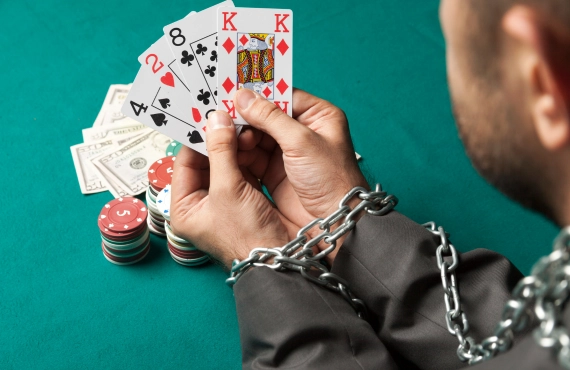
Addiction vs. Casual Gambling
Not everyone who gambles develops a problem. For the majority of people, it’s a form of entertainment—buying a lottery ticket when the jackpot hits record highs, playing poker with friends on the weekend, or playing a few games of roulette while on a vacation to Las Vegas. But for some, gambling begins to take over their time, finances, and mental energy.
The difference between casual gambling and addiction lies in behavior patterns and their impact on everyday life.
Signs Gambling May Be a Problem:
- Preoccupation: Gambling becomes a constant focus, with thoughts about upcoming bets, ways to win back losses, or strategies dominating a person’s daily life.
- Chasing Losses: After losing money, there’s an intense urge to keep playing to “make it all back,” even when the odds are stacked against it.
- Ignoring Limits: Planned budgets or timeframes for gambling get ignored or exceeded.
- Strained Relationships: Gambling starts to interfere with work, social obligations, or family dynamics.
- Secrecy: Hiding the frequency or extent of gambling, usually out of shame or a fear of being judged.
For the casual gamblers, playing is limited, fun, and doesn’t cause any financial or emotional strain. For those who are experiencing addiction, gambling will feel increasingly uncontrollable, and it’s usually accompanied by guilt, stress, or denial.
The Cycle of Addiction
Gambling addiction doesn’t happen overnight—it builds up gradually as behaviors reinforce themselves via rewards and the brain’s desire for more stimulation. Below is how the cycle typically develops:
- The Initial Rush: A win (or even a near-win) triggers the brain’s reward system, releasing dopamine and that creates a sense of excitement and satisfaction.
- Building a Habit: The brain starts associating gambling with pleasure, which reinforces the behavior as something to repeat.
- Chasing the High: Over time, players try to recreate the intensity of that very first win. Even when their losses far outweigh the wins, the promise of “the next time” keeps them going.
- Emotional Dependence: Gambling becomes tied to managing negative feelings like stress, sadness, or frustration. It’s no longer about the thrill; it’s also about an escape.
The brain’s reward system, which was designed to encourage survival behaviors like eating or seeking shelter, will get hijacked by gambling. The result? A cycle that feels impossible to break without outside intervention.
Mental Health and Gambling
Gambling addiction can be connected to severe underlying mental health struggles. Anxiety, depression, and high-stress levels can all act as triggers, which makes gambling feel like an escape or a coping mechanism.
Main Connections Between Mental Health and Gambling:
- Stress Relief: For those who are under constant pressure, gambling can seem like a brief reprieve from any of life’s challenges. The immersive nature of games or betting temporarily distracts from worries, even if that relief is short-lived.
- Depression: People who are dealing with feelings of sadness or emptiness could turn to gambling to experience a rush of positive emotions. Wins or near-wins will give them moments, although fleeting, of happiness.
- Impulse Control Disorders: People who struggle with regulating their behavior may find gambling particularly hard to resist, especially when the activity provides instant rewards.
Addressing mental health alongside gambling behaviors is so important—if the underlying issues go unidentified and untreated, the urge to gamble will persist, even when the negative consequences become severe.
Resources for Help
For those who are struggling with gambling addiction, there is support available! Taking action is the first and best way to get on a path to recovery.
Where to Find Help:
- Hotlines: The National Council on Problem Gambling (1-800-522-4700) provides 24/7 confidential support.
- Support Groups: Organizations like Gamblers Anonymous have peer-led meetings where people share their experiences and their strategies for recovery.
- Therapy: Cognitive-behavioral therapy (CBT) is really effective in addressing the thoughts and behaviors that are linked to gambling addiction.

- Self-Exclusion Programs: Casinos and online gambling sites all allow individuals to block access to gambling services voluntarily or indefinitely, which takes the temptation away.
- Apps and Tools: Technology-based resources can track gambling habits, limit access, or give players daily reminders of goals.
Seeking help is NOT a sign of failure—it’s a courageous and positive step toward reclaiming your balance and well-being.
Benefits of Understanding Gambling Psychology
Knowing the psychological factors that drive gambling will only empower people to make smarter, more mindful choices. It’s not just about understanding the risks; it’s about using that knowledge to take control and approach gambling responsibly.
Informed Decision-Making
Recognizing how triggers and biases work—like the lure of near-wins or the overconfidence effect—helps people pause and think more critically. Awareness of the mental patterns means that gamblers are able to separate emotion from action, and make decisions that are based on logic and not on impulse.
Responsible Gambling Practices
Maintaining a healthy relationship with gambling means staying in control. Set limits, be mindful of emotions, and treat gambling as entertainment and not as a way to make money or a financial strategy are all main components.
Practical Strategies:
- Stick to pre-set budgets.
- Don’t gamble when you are feeling emotional or stressed out.
- Take frequent breaks to think things through and reset.
Insights for Game Design
Gambling operators use psychology to build engaging experiences, but understanding the strategies used is a way to help players approach all casino games with much clearer perspectives. If you know that slot machines use unpredictable reward schedules, then you can steer clear of falling into that trap. And recognizing marketing tactics that highlight big wins over any realistic odds will also keep your expectations grounded and in the real world.
Tips for Managing Gambling Behaviors
- Set Non-Negotiable Boundaries: Decide ahead of time how much money and time you’re willing to spend, and don’t go over those limits.
- Understand Your Triggers: Notice patterns in your behavior, like gambling more when you’re stressed, and find alternative ways to manage or deal with those feelings.
- Don’t Chase Losses: Accept losses as part of the game instead of trying to recover them—it’s a super slippery slope.
- Take Breaks: Walking away means you are able to regain your focus and make decisions with a clearer head.
- Get Support: Whether it’s through friends, family, or professional resources, having a support system can help if you are struggling.
Conclusion: Balance the Risks & the Rewards
Now you know why we love to gamble! But people do it for all kinds of different reasons—fun, curiosity, or as a way to unwind after a long day. But you would be doing yourself a disservice if you ignored the patterns and motivations behind the choices you make when you play. When you gamble with awareness and understanding, it’s so much easier to keep it fun and manageable so you can gamble responsibly.
Here’s a quick recap of everything we covered:
- Gambling is innately tied to human nature, and that means our attraction to risk and rewards.
- Having a good awareness of triggers and behaviors will help keep a healthy balance when you play.
- Thinking about your motivations allows for the most mindful and intentional decisions.
Want even more practical advice on staying in control? Or do you want to know what the best gambling sites are? You can read comprehensive online casino reviews and check out our tips for gambling responsibly by going to GamblingSite.com!
What motivates you to gamble when you do? We’d love to hear your thoughts and perspectives in the comments! Tell us why you play—or why you don’t.

Alyssa contributes sportsbook/online casino reviews, but she also stays on top of any industry news, precisely that of the sports betting market. She’s been an avid sports bettor for many years and has experienced success in growing her bankroll by striking when the iron was hot. In particular, she loves betting on football and basketball at the professional and college levels.

